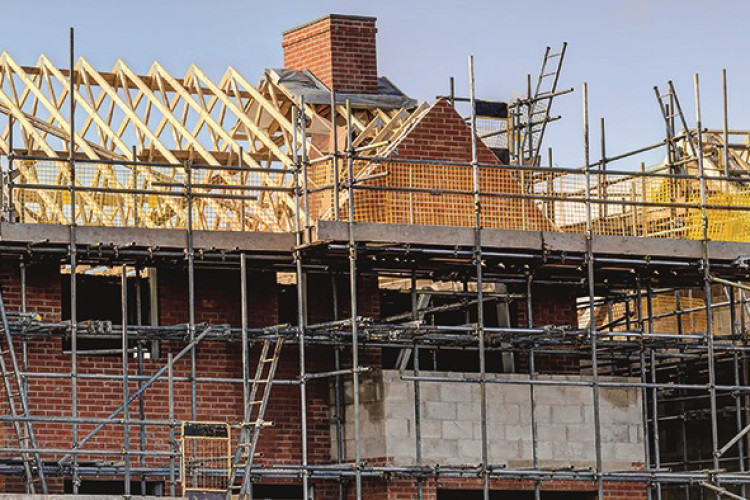The cross-party Lords Built Environment Committee report, Meeting housing demand, calls for SME house-builders to get favourable treatment from planners and the government.
“We call on the government to take action and remove the administrative and other blockers which, at present, make increasing the number of homes built much more difficult, the authors say.
It says that the government should work with local planning authorities to create a fast-track planning process specifically to help small and medium-sized house-building companies.
“The role of SMEs in the house-building industry has collapsed: in 1988, SME house-builders built 39% of new homes; now they build just 10%," the report says. "If housing demand is to be met, SMEs should be supported through reduced planning risk, making more small sites available, and increased access to finance.”
Stewart Baseley, executive chairman of the Home Builders Federation, said last week: “Every single SME I speak to is suffering badly from delays to the planning process. SMEs are literally having to put their businesses on hold whilst local authorities delay the start of construction as their planning departments don’t have adequate capacity to process applications effectively. Allied to concerns on materials and staff, planning delays threatens the demise of even more SME builders.”
Today's report from the House of Lords committee also recommends the wider adoption of the ‘master developer’ model, where larger sites are built out by a number of different housebuilders, as this would help SME house-builders bid for more secure developments. “The government should require local planning authorities and Homes England to increase the percentage of homes on larger sites each year which are built by SME housebuilders,” the report says.
It also says: “The government should work with lenders to encourage them to provide more support to SME house-builders on commercial terms.”
.png)
Other recommendations include the construction of more housing on land around railway stations and more housing aimed at the growing population of independent elderly people.
The report also says that something should be done about the skills shortage, starting with reform of the apprenticeship levy and the Construction Industry Training Board (CITB). “Skills shortages in the construction, design and planning sectors must be addressed to unlock the required development. This will include broadening the base of talent, upskilling and reskilling, including for the green skills needed to address climate change. The number of apprenticeships starts has fallen by over 25% since the introduction of the apprenticeship levy. We call for reform of the levy.”
On the CITB, it says: “The Construction Industry Training Board has not addressed construction skills shortages in an effective manner over many years. Reform is needed to address this issue. The government should consider how the Construction Industry Training Board can upgrade its training offer for construction professionals. Failure to recruit and train the skills required to build new homes should cause the government to consider potential alternative models for a national construction careers body.”
The Federation of Master Builders (FMB) endorsed the peers' recommendations. Chief executive Brian Berry said: “The findings of this report show the invaluable contribution that SME house builders can have in boosting housing numbers and delivering quality homes. It recognises key solutions, with sensible recommendations to tackle the lack of available land and the complex planning system. To reverse decades of declining numbers of small, local house builders, the government must listen. Greater adoption of the proposed ‘master developer’ schemes on large sites to unlock access to stable development opportunities is welcome, but more needs to be done to increase land availability, such as identifying small, underutilised sites in local plans. Fast-tracking applications from small builders would make a real difference, as would addressing skills shortages.”
However, the CITB rebutted the criticisms of its efforts that were made in the report. CITB strategy and policy director Steve Radley said: “Skill shortages in home building are long-standing, have many causes and many organisations have a role in addressing them. CITB grants have helped employers train and recruit thousands of workers but there are many more young people full-time in colleges who would jump at the chance to work in the industry if more employers offered apprenticeships. CITB has made a significant investment of time and money to help address this in recent years. This includes a partnership with the Home Builders Federation to support more effective collaboration between major builders and their supply chains, traineeships that will bring FE students in areas such as bricklaying into work and supporting master classes to improve the skills of existing workers.
“We are also supporting employers that are looking to use new approaches by investing In training to support offsite construction. Our new business plan will introduce a further package of measures to support apprenticeship and work experience and raise the skills of existing workers.”
The Built Environment Committee report, Meeting housing demand, can be downloaded as a pdf here or viewed online at publications.parliament.uk.
Got a story? Email news@theconstructionindex.co.uk



